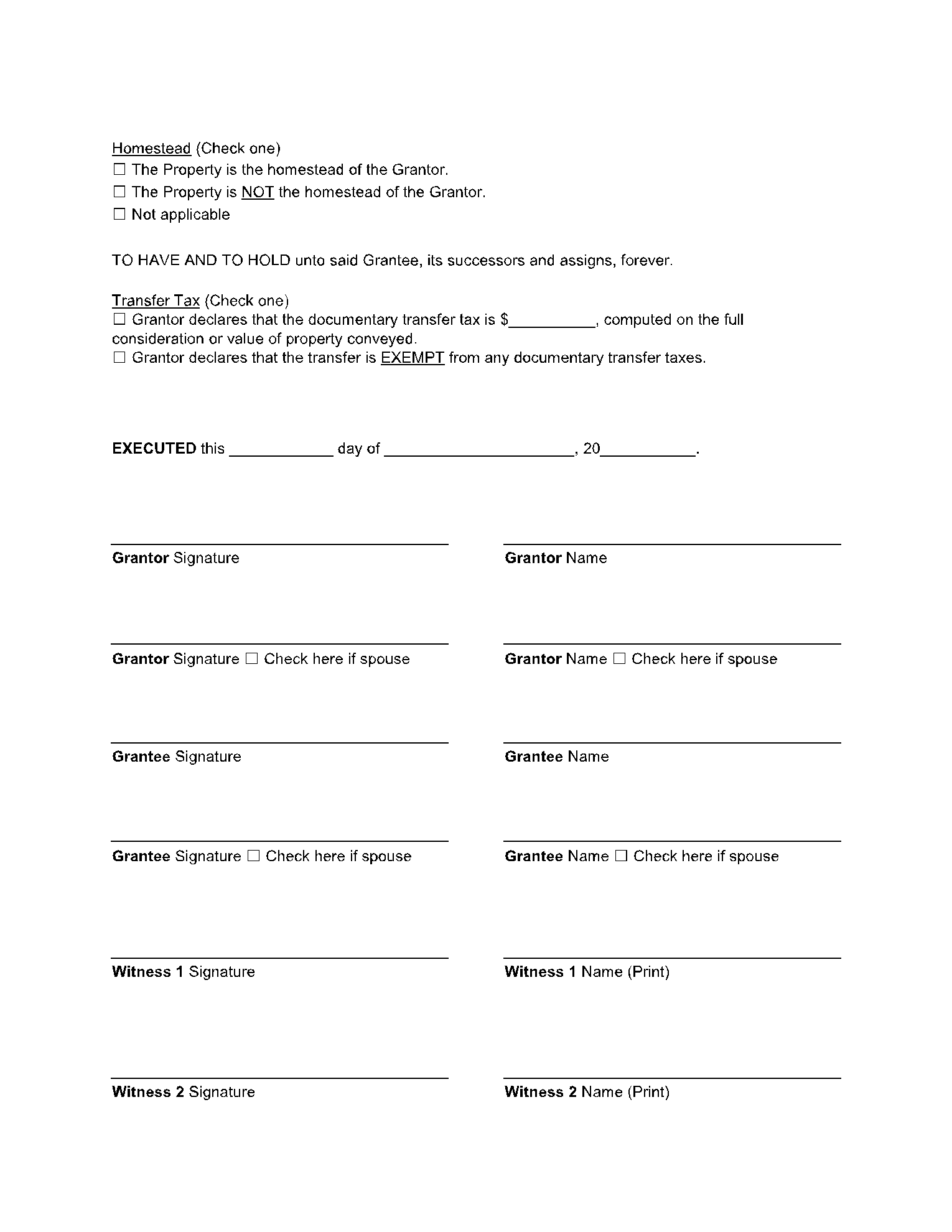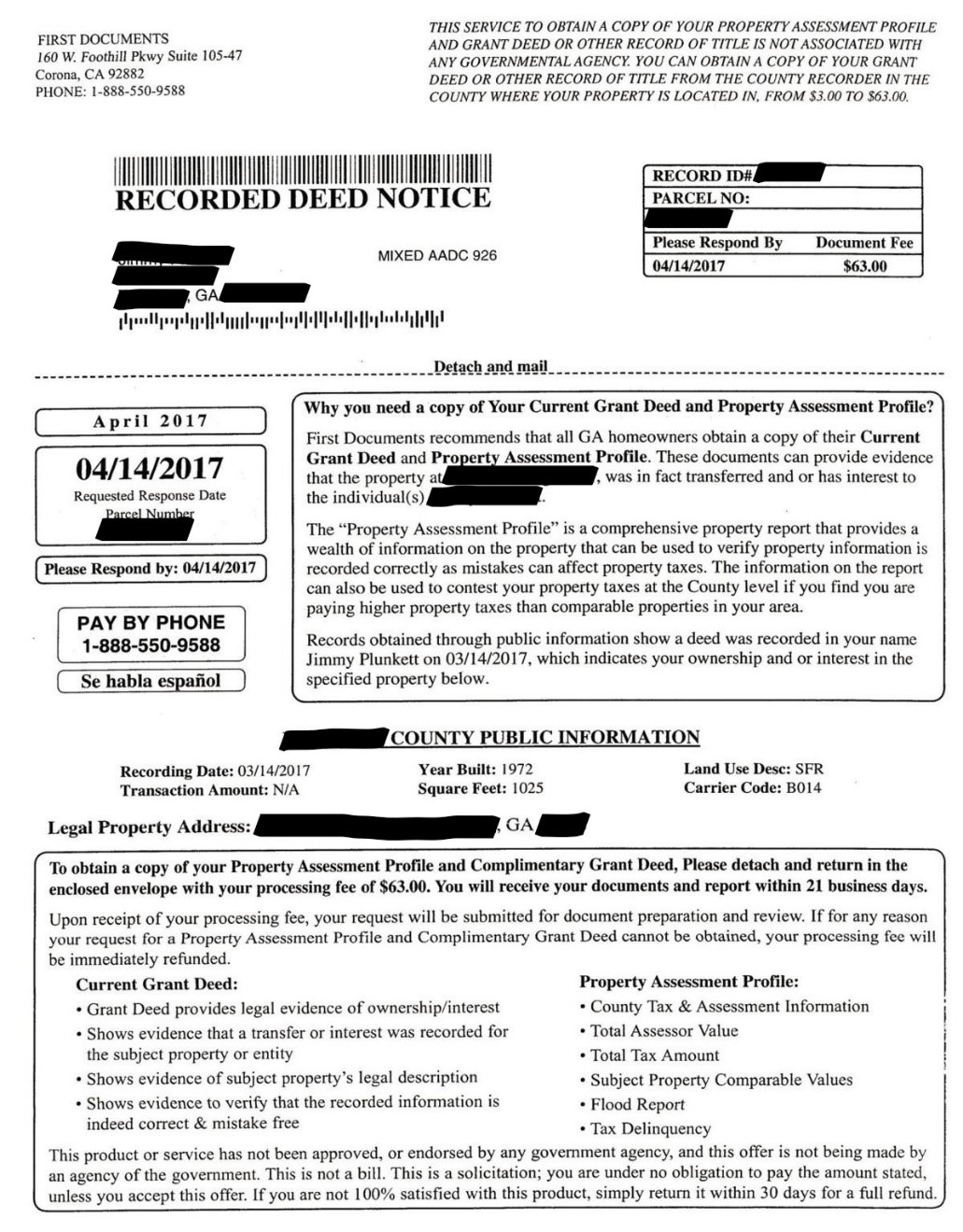Property Deed or Record NYC311
Table Of Content
A quitclaim deed gives the grantee all of the grantor’s rights, whatever those may be. Often it may not even be clear if the grantor has any rights to give, but it prevents the grantor from making any claims on the property in the future. Like a deed without warranties, a quitclaim allows someone to just walk away from all rights--or potential rights--to a property. A general warranty deed offers the most protection for the grantee. In a general warranty deed, the grantor guarantees that there are no encumbrances, such as liens or other rightful claims to the property.
Learn
“Property deed” is a term that many people have heard but may not be able to tell you exactly what it is. While it’s similar to a house deed, property deeds can be used for all sorts of real estate. Although both describe homeownership, the word “title” is conceptual and describes a person’s right and ownership to a property. The deed is the physical legal document that proves this ownership.
Check online
This compensation may influence the selection, appearance, and order of appearance on this site. The information provided by Quicken Loans does not include all financial services companies or all of their available product and service offerings. Article content appears via license from original author or content owner, including Rocket Mortgage. By comparison, quitclaim and special warranty deeds make no such assurances. You can often request your property deed through mail or online.

Deeds
Disagreement on whether to continue shared ownership could also have caused hurt feelings and disrupted what was otherwise a good relationship. A family conversation helped them realize that a shared inheritance didn't make sense. A deed of trust is a deed given to a third party, the "trustee," to hold until certain conditions are fulfilled. It is often used to put up property as security for a loan, resembling a mortgage. The trustee (someone other than the buyer and the lender) gets the deed and technically owns the property while the loan exists.

A deed, on the other hand, transfers the title from the grantor to the grantee. So when you purchase a home you’ll own both the title and the deed. They are recorded at the local county recorder’s office and can usually be accessed by anyone interested in viewing the property’s history and ownership details.
A general warranty deed is used in many real estate transactions because it’s one of the most secure types of deeds. Ensuring that the grantee has a clear right to the property, a general warranty deed makes certain that the property is absent of any liens, encumbrances and debts. With a general warranty deed, the buyer can have total confidence that they have complete legal ownership of the property. Special warranty deeds and quitclaim deeds don’t offer grantees the same protection. From time to time, people confuse the terms “house deed” and “house title” because they both pertain to property ownership rights. However, a deed is a physical, legal document while a property title is conceptual rather than tangible.
Using 401k to Buy a House: The Ultimate Guide to Smart Homeownership with Retirement Funds
Home buyers should ask sellers to purchase title insurance for the benefit of the new owners to back up their warranty. This way, they don’t have to track the prior owner down to defend them should a claim arise. House deeds, also referred to as property deeds or real estate deeds, are typically drawn up by a real estate attorney.
Criminals using deed fraud, identity theft to steal Arizona homes - Arizona's Family
Criminals using deed fraud, identity theft to steal Arizona homes.
Posted: Mon, 23 May 2022 07:00:00 GMT [source]
Participants in this survey will not receive further communication from the City with regards to this survey. Uniform Commercial Code (UCC) Financing Statements show a security interest in personal property, including in a co-op. The Office of the City Register records UCC Financing Statements for co-ops and fixture filings only. All other UCCs must be filed with the New York State Department of State. UCC Financing Statements for co-ops are filed through the Automated City Register Information System (ACRIS). If you have a question about your property's tax map, you should hire a certified land surveyor.
However, assets that transfer through a will still pass through the probate process, which can be time-consuming and expensive. In addition, a will is a public document, so anyone can review the decedent's assets and see who inherited them, creating a potential privacy concern. An unassailable ownership claim, or "clear title," relies on a clear chain of grantors and grantees that one can track from the original owner to the current deedholder. Having a clear title means that there will be no unexpected, valid claims on the property against the deedholder. The owner will start to receive a property tax bill, also called a Statement of Account, for that property either quarterly or semi-annually.
Perspective Before putting your name on your parents' deed, be sure to investigate the tax implications - The Washington Post
Perspective Before putting your name on your parents' deed, be sure to investigate the tax implications.
Posted: Mon, 11 Apr 2022 07:00:00 GMT [source]
This type of ownership is most often utilized by single homeowners or married individuals who want to be the sole owner of the property. A property deed is the legal document that officially transfers ownership of the property from its previous owner to its new one. When it comes to buying a house, there’s a lot of terminology to know.
Call the local appraisal district or check your property’s tax statements for the exact legal description to use. A property deed helps dispute resolution, identifying the rightful current owner of the property. It also helps keep track of how frequently the property’s ownership has been transferred.
Some types of statutory deeds, such as transfer on death deeds, may not require this step. In real estate, the terms "title" and "deed" can be confusing. Deeds typically refer to two parties—the grantor and grantee. The grantor is the current owner who is transferring the property to someone else.
Locating the original deed is also important before purchasing land from someone else. A quitclaim deed is also sometimes referred to as a warranty deed. It offers the grantee the least amount of protection, doesn’t make any promises regarding the title and offers no legal recourse if there is a problem. A special warranty deed guarantees a certain amount of protection for the grantee but not as much as a general warranty deed. That’s because a special warranty deed only guarantees that there are no problems with the title during the grantor’s ownership period.
Inheriting a property comes with a step-up in basis (which means it's reassessed at current market value) potentially eliminating capital gains tax. Rights to natural water, such as a river running through a property, is separate from land ownership. Water rights, also called riparian rights, are complicated and heavily regulated.
Comments
Post a Comment